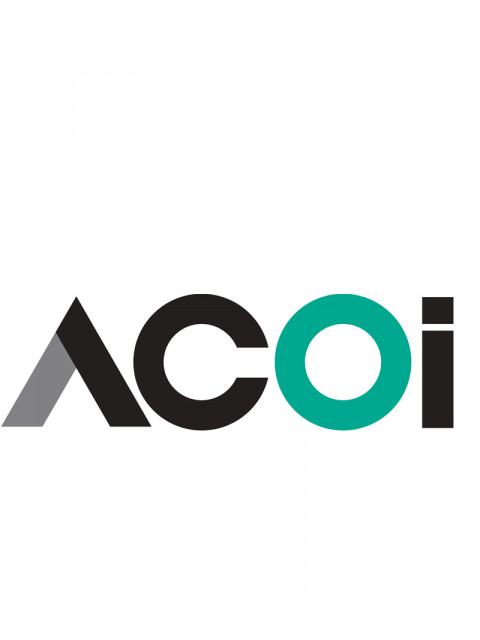
Advocacy & Leadership Boosts Representation for the Osteopathic Profession When It Matters
by ACOI
September 27, 2022
Driven by his passion to ensure osteopathic physicians were well represented whenever decisions about the future of medicine were being made, David. F. Hitzeman, DO, MACOI, the 2022 winner of the ACOI's Distinguished Service Award has never shied away from immersing himself in tackling the big issues of the day.
Dr. Hitzeman's history of service to osteopathic medicine spans a 40+ year career that eventually took him from the role of rural physician to the realm of academia, to major leadership positions both in osteopathic and allopathic organizations. Successfully balancing the demands of career, family, and leadership roles, has been a hallmark of Dr. Hitzeman's professional life, as has been his enduring involvement in issues of advocacy and leadership. When it comes to advocating on behalf of osteopathic physicians and the promotion of a reimbursement system that recognizes appropriate reimbursement and the expansion of quality care, there are no others respected more for their wisdom, dedication, and devotion.
"Back in the late 1980s and 90s astronomical medical care costs and the rise of technology were explosive issues," he explains. "During that time, I felt a need to make sure we were staying ahead of the curve as best we could and to convince my colleagues to do the same. A lot of the challenges were because we were osteopaths and we couldn't go into the conference room with the Blue Cross' and Blue Shields and Aetnas of the world and have the same kind of effect that large MD groups had," he said. "Yet, within that environment, we had to show that we were fully qualified physicians and could work with our local MDs because we needed their services, especially in a rural community," he said.
He not only stayed involved in policymaking, representing a robust and fervent osteopathic presence, but he often led the charge, especially when it came to having a voice in the reimbursement process with CMS. From 1996-2021, he served as the AOA's Representative to the AMA Relative Value Scale Update Committee (RUC). The RUC is a select volunteer group of physicians that advises the Centers for Medicare and Medicaid Services (CMS) on how to value a physician's work.
"CMS needs strong, unbiased physician support among the specialties as to how payments should be made and adjusted. It was a very laborious and time-consuming process," he said. "As an osteopathic physician involved in that process, I felt that we represented the profession well. Our presence was also appreciated by the whole MD community. At that level, there are representatives from every major specialty to make the decisions to recommend to CMS, and I happened to be the one representing all of osteopathic medicine."
Advocacy work takes an enormous amount of time and effort. The dedication involved isn't just about attending meetings. It is about the research and preparation necessary to affect change while working together at each of the policy meetings held several times through the year and ensuring that the quality and basic principles of osteopathic medicine are considered.
He said, “We did meetings three times a year which were usually four days long. There was up to 2,000 pages of materials for those meetings! That's why having qualified people at both the local level and at
the state level dealing with the state and the licensing board is important. We need to make sure that we're looking out not just for the doctors but also looking out for the quality of care for patients. It is about making sure that the physician's voice is heard and not just the bean counters and the other regulators. And I think we've been able to do that," he said.
What is necessary to be effective when working with bureaucratic agencies on massive issues like physician reimbursement? He says commitment. "You have to make that commitment, and that is not only time, but it's resources, money, and time away from family." His work as an AMARUC representative for the AOA, for example, stretched for 25 years. The time and energy spent on the Committee was in addition to this work on local, state, and national associations. This included his time as a member of the ACOI Board of Directors and Chair the ACOI's Practice Management Committee. In addition, he worked with over a half dozen other organizations, and was involved on dozens of committees and working groups. He also received a gubernatorial appointment to help solve rural health care access issues, and worked with the Oklahoma Foundation for Medical Quality.
He hopes that the new generation of osteopathic internists will also make commitments to the profession, especially since there is now broader recognition of DOs by MDs and others who Dr. Hitzeman and his colleagues fought long and hard to earn equity with.
"Over my lifetime, we've seen a lot of basic principles of osteopathic medicine now incorporated into the allopathic side. It's because they have seen how our approach to the patient is better. Osteopaths have been incorporated into places other than osteopathic hospitals now and that shows the success of what we did and what we've proven," he said. So where do we go from here? How do we maintain a separateness or an identity? That's the big challenge for people now. It's not a recognition of quality. It's a recognition of the need to have a separate, identifiable profession."

